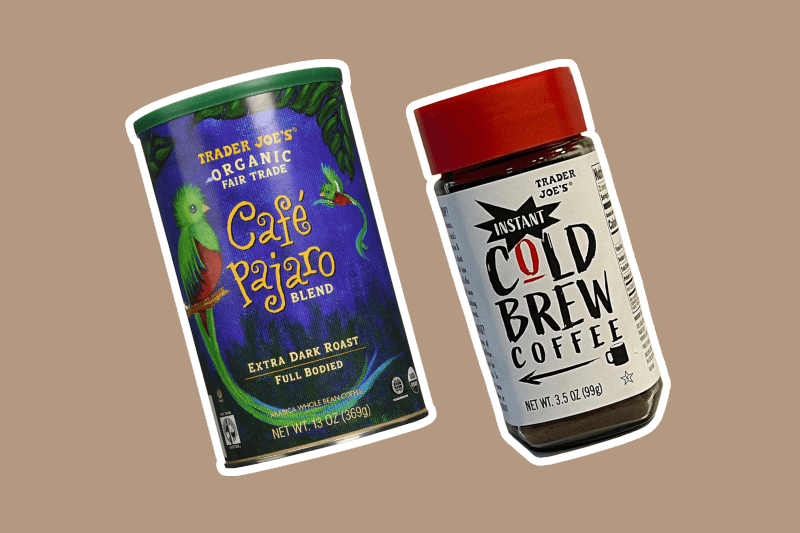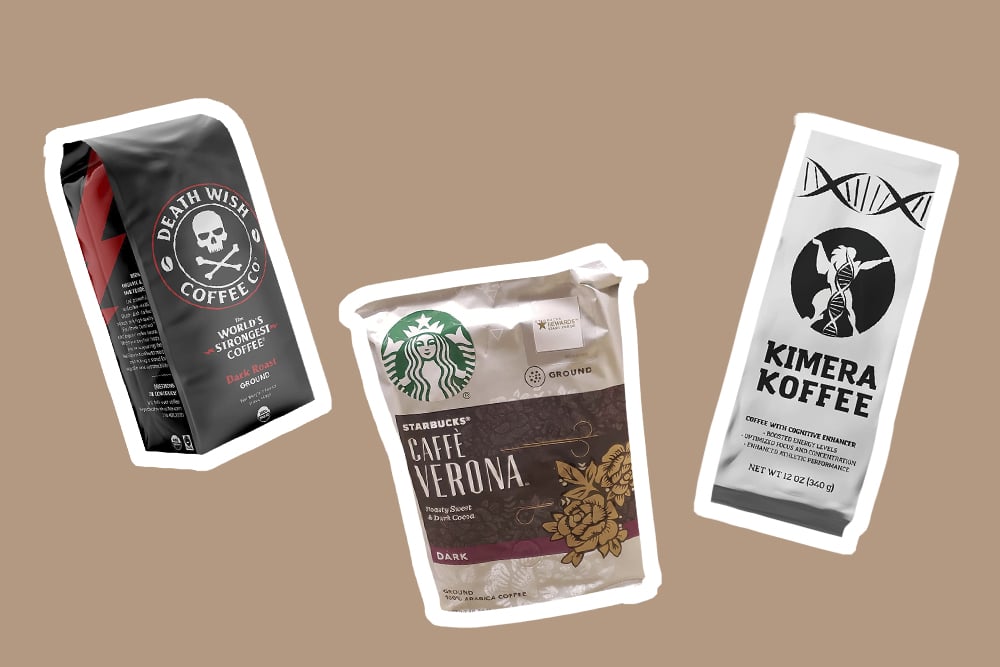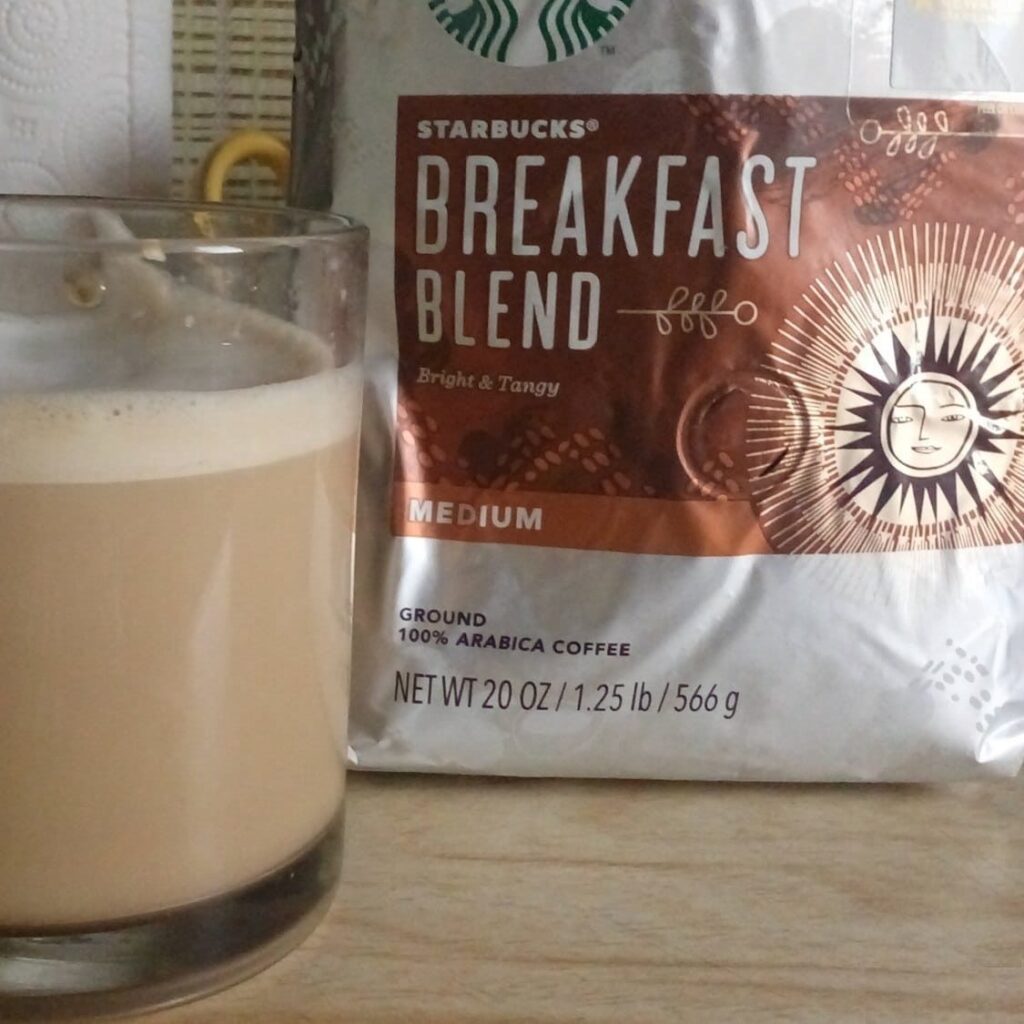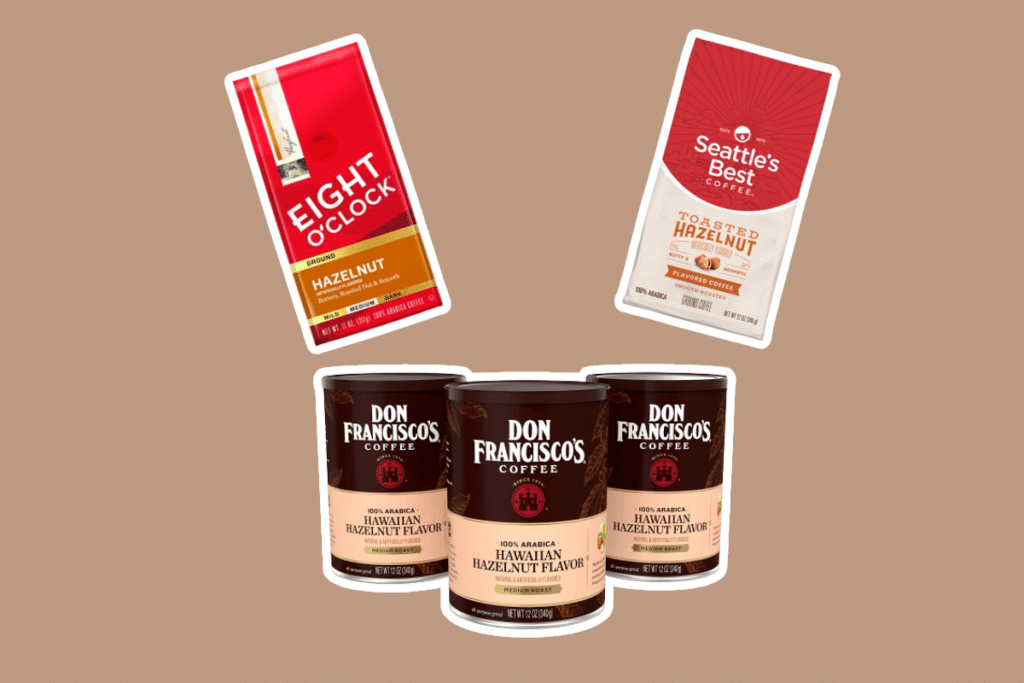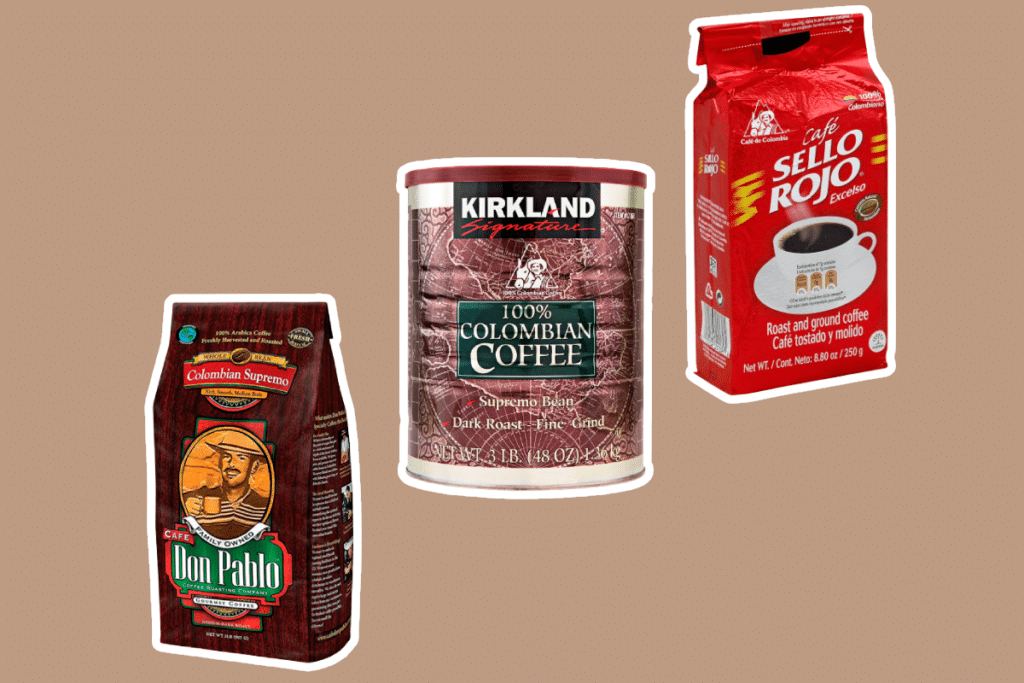

Unlike in your home, coffee shops almost always use fresh ground coffee. You might even see the commercial-level coffee grinder filled with beans on the counter whenever you go to purchase your espresso, macchiato, mocha, or cappuccino. This is because enthusiasts technically consider freshly ground coffee better, especially when compared to pre-ground packaged coffee. However, if you were to ask your barista, they probably wouldn’t know why it’s considered better. Fortunately, we have the answers to that question and can tell you why the next time you go coffee shopping, the bag of whole bean coffee is a lot better than the smaller sachets containing the pre-ground alternative.
When you’ve been a coffee enthusiast for a while, it’s easy to distinguish between freshly ground coffee and any other variant. You can even tell the difference in the taste. Nevertheless, if you don’t know the difference, freshly ground coffee is just as implied by the name. You get the coffee as whole beans and only grind it in small bits when it’s time to brew a cup or two.
Users and reviewers recommend the Capresso 560 Infinity grinder for anyone looking to start using freshly-ground coffee. It comes with durable solid steel burrs and even offers a wide grinding range, and we’ll touch on the importance of this later in the write-up.
Of course, the alternative to freshly-ground coffee is pre-ground coffee. It’s widely available in stores, and the beans are ground at the factory after being roasted and packaged. Notably, even if you grind the beans yourself and then store them for later use, they still qualify as pre-ground beans.
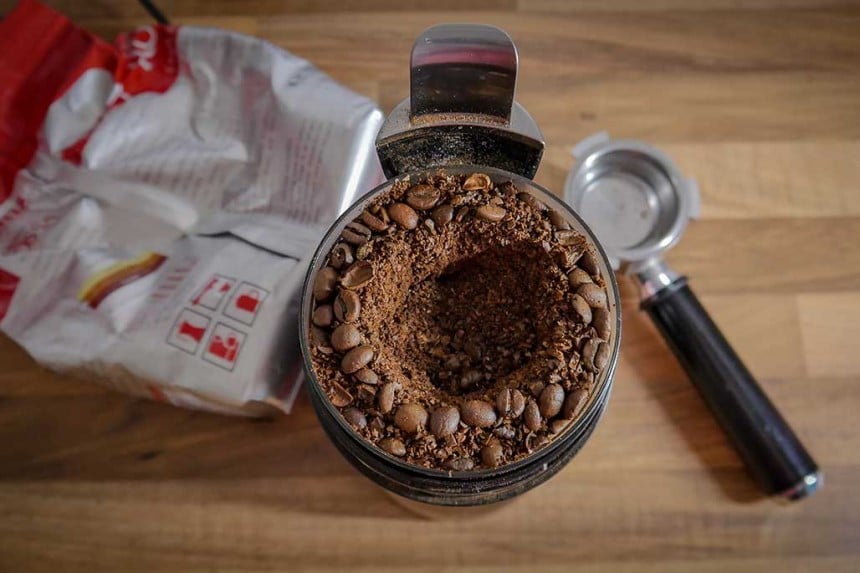 Fresh Ground Coffee vs. Pre-Ground
Fresh Ground Coffee vs. Pre-GroundOf course one of the biggest questions that comes up in a fresh ground coffee vs pre ground coffee debate is, “Does freshly ground coffee taste better?” The truth is it does and here are a couple of reasons why.
Oils known as lipids are a natural part of your coffees makeup and it’s much easier to confirm this with darker roasts. You’ll notice they have oily skin although the presence of these oils will be more understated in lighter roasts. The bulk of these oils stay inside the bean and are an essential part of the coffee’s flavor.
Like other oils these lipids don’t dissolve well in water. However, once they mix with water they are released from the beans in the form of emulsion. If this happens when you’re brewing the coffee you can enjoy some of the flavor of these lipids in your beverage.
Nevertheless, they might not make it into your beverage since the atmosphere is full of moisture as well. If your beans are exposed they will lose the oils on the exterior. Additionally, if more of the surface area of the bean is exposed to moisture they will lose more lipids.
Unfortunately grinding your coffee beans tends to increase the surface area exponentially and the longer the exposure to moisture the more lipids they lose. You can reduce the exposure by putting the grinds in airtight containers but you will still be introducing more moisture into them with every brew session since you’ll have to open and close them.
Conversely, if you only grind your beans just before a brew session you don’t lose much of these lipids to moisture exposure in the air.
According to Biology Online Trusted Source Oxidation Definition and Examples - Biology Online Dictionary Oxidation – All about oxidation reaction, reduction reaction, oxidation in biology, oxidation reaction during biological processes, Redox reactions. www.biologyonline.com , oxidation is the transfer of electrons from one compound to another. In the case of your beans some of the compounds that make up the coffee aren’t very stable and may go through oxidation. That said, the electrons in these compounds need to have a destination which is where the air in the atmosphere comes in.
Notably, oxidation will start to happen as soon as the bean is out of the roaster since it will be exposed to air. It’s a process that takes time. However, there is one way to hasten it and that is to increase the surface area. As such, if you grind your beans you increase the speed of the oxidation process exponentially.
Consequently some of the compounds that make the coffee so good will be lost and can even affect the flavor profile and aromas you get from the beans. That said, oxidation will happen whether you grind your beans or not. It’s not all bad and coffee experts even insist oxidation is essential for the full expression of bean flavor. However, if you don’t curtail it’s progress it can change the chemical makeup of the bean entirely and ruin the flavor as a whole.
If your beans are whole the insides are protected by the hard external endosperm therefore slowing the process significantly. As such, the flavors and aromas are preserved for much longer.
Roasting coffee will result in formation of gases inside the beans and one of these gases is CO2. Additionally, it will cause degassing which is where the CO2 slowly escapes the bean and this can lead to uneven extraction. The remaining CO2 after a few days of the initial degassing helps with the flavor of the coffee and the creation of crema.
Also, if too much degassing happens the coffee could go stale in just a few hours so you want to at least preserve some of it before it’s time to brew. Nevertheless, when you break up the cells of the beans during the grind process you provide the CO2 an easy out which means that you have to brew soon otherwise you lose all the benefits of the gas.
Pre-packaged coffee manufacturers manages to work around the coffee going stale by introducing some new preservatives but they can’t do anything about preserving the CO2 contents.
It’s unlikely that you’ll store your beans or grinds away from your kitchen. Unfortunately, this also means the coffee will be in close proximity with other foods, fruits, and beverages which all have their distinct flavors and aromas. These flavors and aromas can also be imparted on the coffee depending on the amount of exposure.
We mentioned the hard external endosperm and how it works to keep the innards of the beans protected. However, by grinding you expose more of the surface area of the beans to contaminants especially in terms of flavor and smell. As such, you may brew a cup only to find that it tastes and smells a lot like the tuna you’ve had next to it for a few days.
If you’re an enthusiast you know how much the flavor and aroma of your coffee affects the overall drinking experience. As such, you want to preserve it for as long as possible or up until you brew your caffeinated beverage.
That said, contamination will happen even when the coffee is in the fridge. It might seem like there aren’t any odors in there but that’s only because the cold air affects your sense of smell. However, these aromas remain intact and are likely to become part and parcel of your grinds due to chemical processes such as reduction, oxidation, and more.
Consequently, one of the best ways to keep your beans from contamination is to keep them whole for as long as possible.
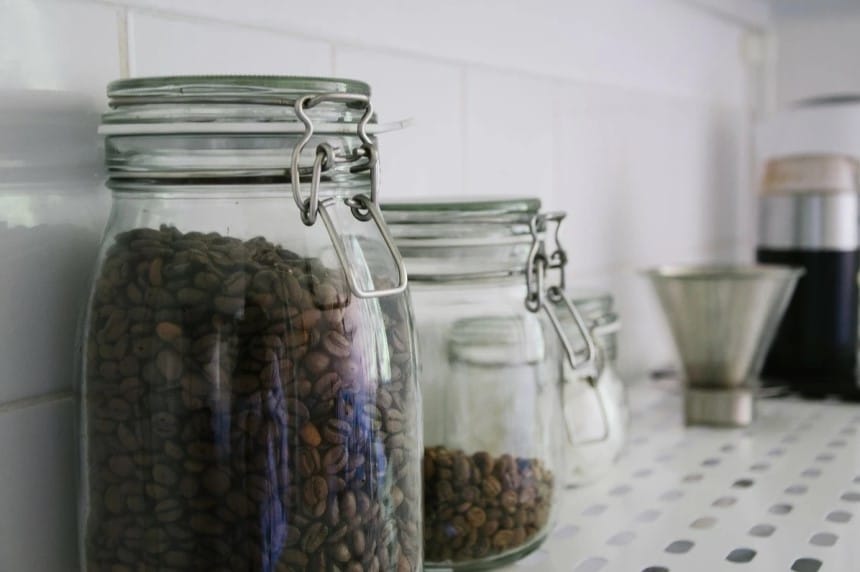 You Get Control Over Grind Sizes
You Get Control Over Grind SizesA key element of any coffee beverage you encounter is the grind size. Some of the beverages require finer grinds than others. If you own a grinder for espresso or for other beverages you can decide on the grind size to match the coffee beverage you intend to make.
French press coffee for instance tends to require a coarse even grind that is much easier to filter out when it’s time to enjoy your beverage. If you were to use finer grinds they would find their way into your drink and make it unbearable.
Alternatively, you’ll have an easier time extracting the fullness of the coffee flavor if you use finer grinds. That’s why fine grinds are best for espresso. If you have an appreciation for fine coffees you can also tweak the flavors you enjoy in each batch by adjusting the grind size.
Also, the grind size affects how much coffee you can add to your portafilter before you press brew on your coffee machine. The more coffee you can pack in there the more intensity you’ll get with regard to the coffee flavors. This is also why finer grinds are preferred for stronger coffee beverages like espresso.
With pre-ground coffee the whole pack comes in one grind size. However, if you have the beans lying around you can choose to change the grind size depending on how you feel, the time of day, and the equipment you’re using. If you like to experiment with flavors this will make it a lot easier. Also, it could make it easier to match the beverage needs of your guests whenever you’re hosting.
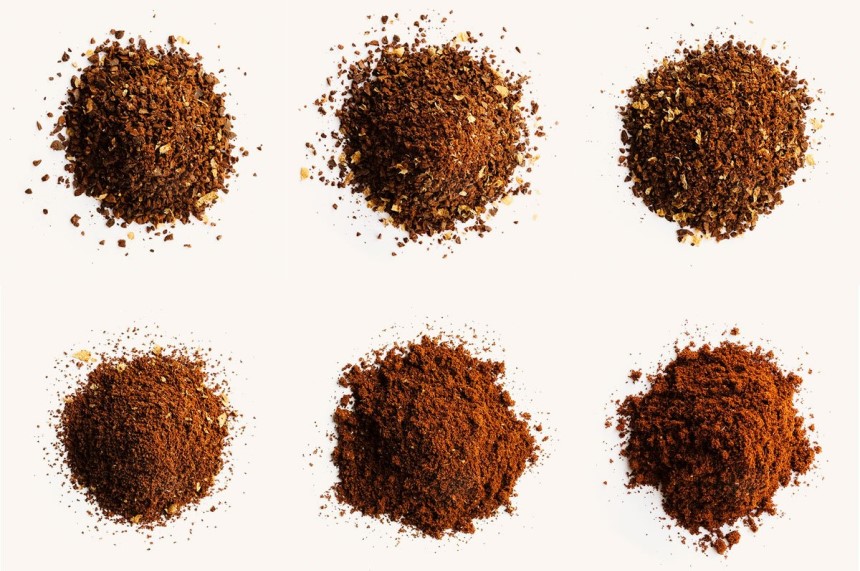 You Don’t Mix Coffee Flavors
You Don’t Mix Coffee FlavorsSpecialty or gourmet coffee is the highest calliber of coffee you can find in the market. Often the beans are from a single origin or farm and the intension is not to mix the flavors. That way, if it’s fruity you enjoy the fruitiness to the fullest. If it’s nutty or acidic these flavors will be more pronounced in the brew.
If this is the kind of experience you want then pre-ground coffee is not gonna cut it. We’ve already mentioned that it loses flavor over time. Additionally, the manufacturer may use the same equipment for grinding all their coffees and as such, there’s bound to be some overlap of flavors. Flavor mixing may also be as a result of storing the grinds in the same place before you package them.
Nonetheless, if you have a grinder for French press or espresso you can grind one batch at a time and clean your equipment before moving to the next batch. This will help you maintain the best flavors with your brews.
You may not always use up all your grinds when brewing coffee. In that case you’ll want to know hot to keep ground coffee fresh for longer so you don’t have to throw it away. After all, the information above paints a grim picture of what will happen to the flavors and the aroma.
Notably, it comes down to storage and maybe some information on how coffee reacts to certain conditions in the environment. For instance, we already mentioned that contact with air will lead to oxidation and loss of lipids.
Consequently, you need to curtail contact between the freshly ground coffee and the air. This can be done by locking the coffee in an airtight container. However, if you store too much ground coffee in the container it could be a problem because you’ll need to open and close it often. As such, you’ll be introducing more air and moisture every time you open it.
Also, loss of CO2 can be a problem and it’s one you solve with the airtight container as well. It will preserve some of the CO2 content since the gas has nowhere to go. Besides air and moisture another element that you’ll need to look out for is light due to photodegradation.
Science Direct Trusted Source Photodegradation - an overview | ScienceDirect Topics Photodegradation – Process by which pesticides are broken down by the action of light, particularly sunlight. www.sciencedirect.com describes photodegradation as the tendency of the grinds to react with atmospheric oxygen where light is present. This happens with whole beans as well which is why coffee bags are often lightproof. Consequently, your airtight container also has to be lightproof.
Reveiwers recommend the CafetastiQ coffee cannister because it easily fits this parameter and is thus ideal for storing your freshly ground coffee. It’s airtight, lightproof, and as a bonus has a smart date dial. After all, you can’t store your coffee there indefinitely and you need to know when it’s been in the cannister for too long and has gone stale as a result.
How Long Does Ground Coffee Stay Fresh?
Coffee in general doesn’t stay fresh for very long. In fact, it starts to lose its freshness as soon as it’s roasted. This is also why coffee enthusiasts opt for subscription service coffees. They likely don’t have the time to go shopping for a new batch and the shelf life of the beans isn’t conducive for long term storage. Ultimately you shouldn’t try to consume your grinds in less than two weeks.
When Is It Best to Grind Coffee Beans?
Ideally, you should grind when you’re ready to brew a cup or two of coffee. The degradation happens relatively fast after you grind the beans which is why you wait until the last possible moment. If you do it a day or two before the flavor, aroma, and quality you get will be starkly different from what you get five to ten minutes after grinding.
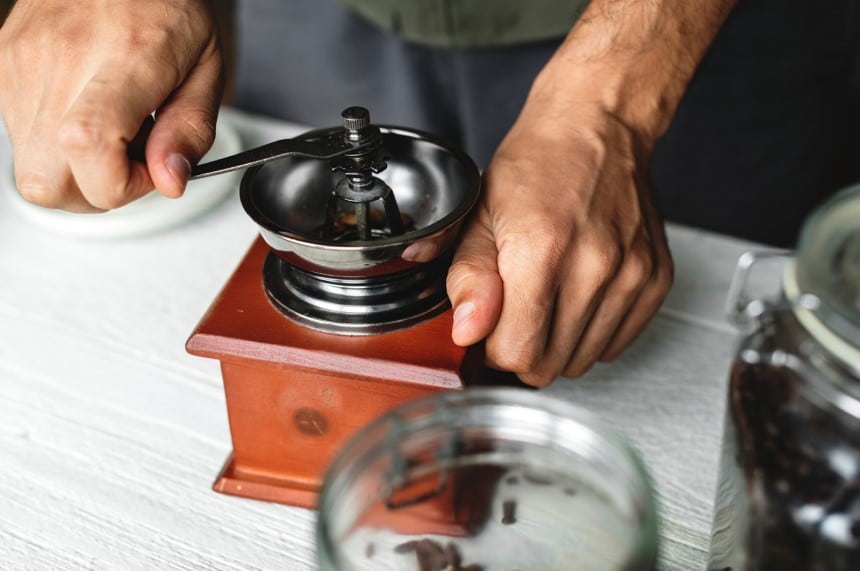
One reason why pre-ground coffee is cheaper than whole beans is the higher demand. Most people just want the convenience of a coffee they can make in minutes before heading out the door in the morning. On the other hand, coffee enthusiasts aren’t very many especially when compared to the larger coffee drinking community.
It is this group of coffee drinkers that insists of whole beans since they know the benefits and they appreciate the flavors and aromas even more. Nevertheless, the fact that the market is smaller means they have to pay more.
It’s also easier to package pre-ground coffee. Since it’s ground it can be packed down so it takes up less package space. Conversely, whole bean coffees come in larger bags and this can raise the shipping costs and raise the overall cost of the coffee as well.
So, does freshly ground coffee taste better? Yes. It’s considered better due to a couple of factors mentioned above. It might be more expensive but if you want a better coffee-drinking experience then fresh ground coffee is the way to go. It might help to have a grinder at home before you make the switch. Also, if you accidentally grind too much coffee at the same time we’ve included some tips on how to keep it in the best condition for as long as possible.

